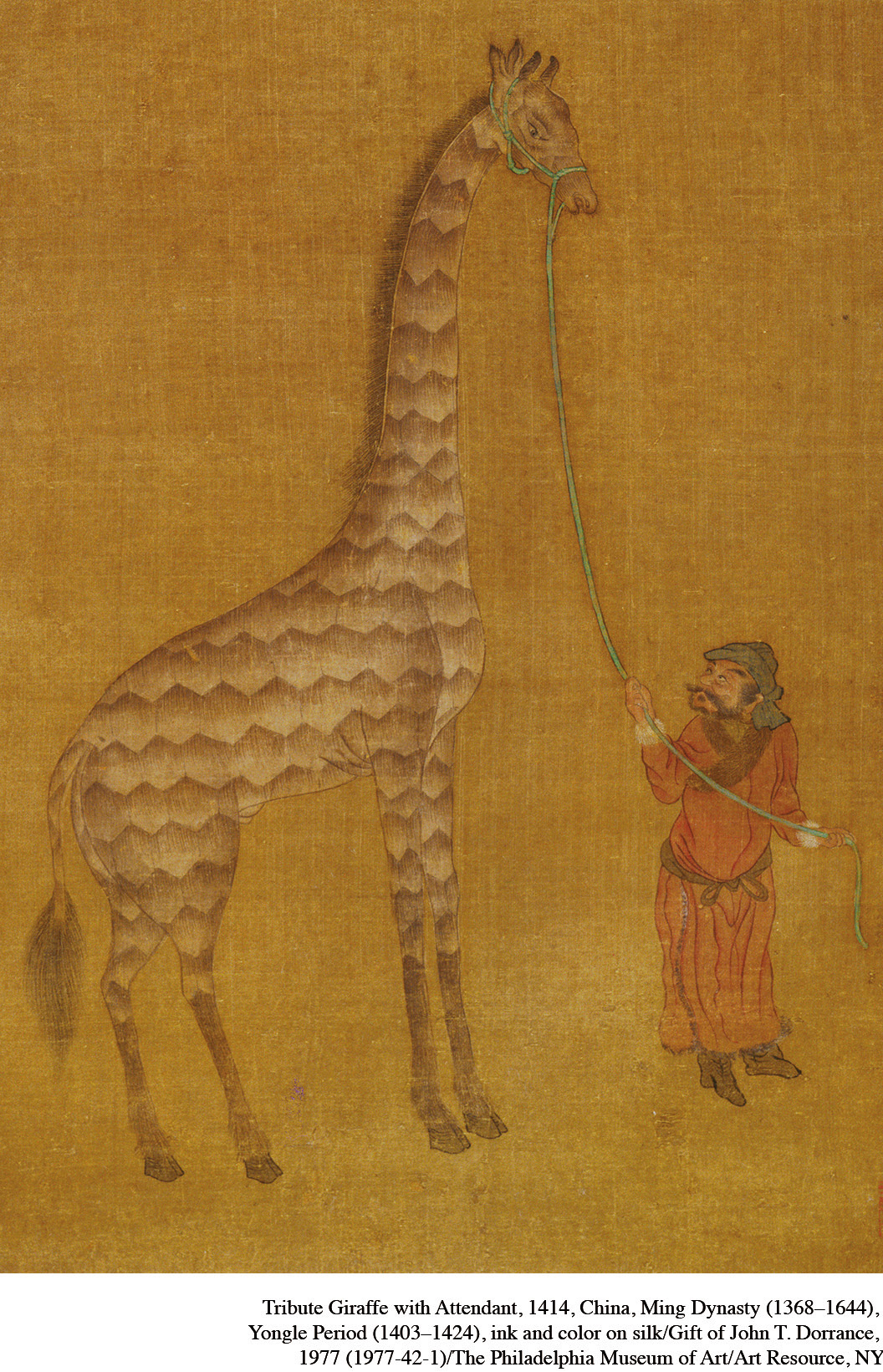ZOOMING IN: Zheng He, China’s Non-Chinese Admiral

At the helm of China’s massive maritime expeditions in the early fifteenth century was a most unusual person named Zheng He.4 Born in 1371 in the frontier region of Yunnan in southwestern China, his family roots were in Central Asia in what is now Uzbekistan. Both his father and grandfather were devout Muslims who had made the pilgrimage to Mecca. The family had also achieved local prominence as high officials serving the Mongol rulers of China for a century. Zheng He would surely have continued in this tradition had not a major turning point in China’s history decisively altered the trajectory of his life.
Zheng He’s birth, as it happened, coincided with the end of Mongol rule. His own father was killed resisting the forces of the new Ming dynasty that ousted the Mongols from Yunnan in 1382. Eleven-
After his castration, pure chance shaped Zheng He’s life as he was assigned to Zhu Di, the fourth son of the reigning emperor, who was then establishing himself in the northern Chinese region around Beijing. Zheng He soon won the confidence of his master, and eventually the almost seven-
The seven voyages that Zheng He led between 1405 and 1433 have defined his role in Chinese and world history. But they also revealed something of the man himself. Clearly, he was not an explorer in the mold of Columbus, for he sailed in well-
The voyages also disclose Zheng He’s changing religious commitments. Born and raised a Muslim, he had not lived in a primarily Islamic setting since his capture at the age of eleven. Thus it is hardly surprising that he adopted the more eclectic posture toward religion common in China. During his third voyage in Ceylon, he erected a trilingual tablet recording lavish gifts and praise to the Buddha, to Allah, and to a local form of the Hindu deity Vishnu. He also apparently expressed some interest in a famous relic said to be a tooth of the Buddha. And Zheng He credited the success of his journeys to the Daoist goddess Tianfei, protector of sailors and seafarers.
To Zheng He, the voyages surely represented the essential meaning of his own life. In an inscription erected just prior to his last voyage, Zheng He summarized his achievements: “When we arrived at the foreign countries, barbarian kings who resisted transformation [by Chinese civilization] and were not respectful we captured alive, and bandit soldiers who looted and plundered recklessly we exterminated. Because of this, the sea routes became pure and peaceful and the foreign peoples could rely upon them and pursue their occupations in safety.” But after his death, Zheng He vanished from the historical record, even as his country largely withdrew from the sea, and most Chinese forgot about the unusual man who had led those remarkable voyages. In the early twenty-
Questions: How might you describe the arc of Zheng He’s life? What were its major turning points? How did Zheng He’s castration shape his life?